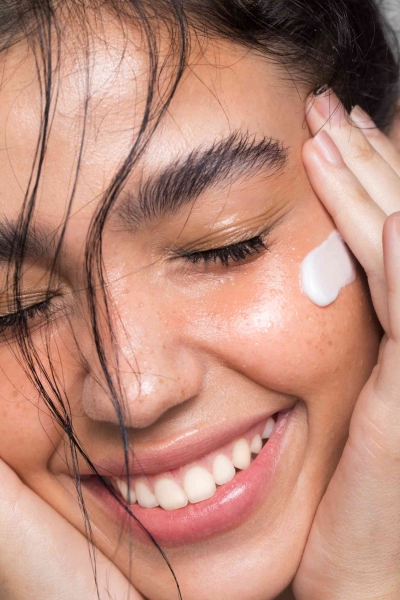Contents
From Selena Gomez and Ariana Grande to teens at Sephora, it’s hard to find someone who doesn’t swear by retinol these days. The skin care multi-hyphenate, which can benefit everything from acne to aging skin, is one of the most well-researched ingredients at our disposal. “Beyond sun protection, retinoids are the most proven topical option for anti-aging,” says dermatologist Hadley King, M.D.
Retinoids work by increasing skin cell turnover. On average, the epidermis (or top layer of the skin) turns over monthly. Retinoids speed up the process so that it turns over in about 14 days, helping to unclog pores and fade dark spots. Retinoids also boost collagen production, the protein responsible for firm, plump skin, which helps smooth fine lines and wrinkles. But there can be some confusion around its many names.
From retinoids to retinol, tretinoin, and retin-a, it's hard to know where to start. We tapped experts to explain the differences and break down the benefits, side effects, and uses of each.
Meet the expert
- Hadley King, M.D., a board-certified dermatologist and Clinical Instructor of Dermatology at the Weill Medical College of Cornell University. Ruth Jobarteh-Williams, M.D., FAAD, a board-certified dermatologist at WellSpan York Hospital.
Retinol vs. Retinoid
As it turns out, it's not a matter of one versus another. Retinoid is an umbrella term to describe different vitamin A derivatives, including retinol, retinal, and retinoic acid, says Ruth Jobarteh, M.D. another New York-based dermatologist.
Retinoic acid is the purest form, and what actually works in the skin. As for the rest, “the difference comes in terms of the conversion. Retinol has to be converted to retinal and then retinoic acid before it can work in the skin. There’s a two-step conversion,” Dr. Jobarteh says. “For retinal, there’s only a one-step conversion, from retinal to retinoic acid.”
Retinoic acid is available in formulas like Tretinoin, which are prescription only. Over-the-counter retinoid products usually contain retinol, and in some cases, retinal.
While more potent retinoids, like retinoic acid, may be more effective in a shorter period of time, they can be more irritating. Retinol and retinyl palmitate-based products are gentler, with more subtle effects.
Retinol is a form of retinoid that must go through a two step conversion process into retinoic acid, the form of retinoid that can be used by the skin. It's found in many over-the-counter skincare products. Tretinoin is a retinoic acid formula available only by prescription. It's stronger and more potent than retinol products.
Retin-A is a brand name for tretinoin, a prescription medication that contains retinoic acid. Retinol is a weaker form of retinoid found in many over-the-counter products.
Types of Retinoids
The different types of retinoids include:
- Retinoic Acid: the purest kind of retinoid. Can be used immediately by the skin. Available only via prescription, in formulas like Tretinoin.Retinal (also known as retinaldehyde): Must be broken down into retinoic acid before the skin can use it. Available in some over-the-counter skincare products.Retinol: Must be converted to retinal and then retinoic acid before the skin can use it. Available in many over-the-counter skincare products.Retinyl Palmitate: an even more mild form of retinol that goes through an additional conversion step. Best for very sensitive skin.

Benefits and Side Effects
Both retinoids and retinol can target acne, hyperpigmentation, fine lines, wrinkles, and psoriasis. Prescription retinoids and retinal may work faster and more effectively since they're stronger and require fewer conversions. But with a higher concentration comes a greater risk of side effects.
Side effects include redness, flaking or scaling skin, and a stinging or burning sensation. Dr. King says that these symptoms usually resolve within a month. Another side effect of retinoids is what's colloquially called the retinol purge. Some people find their skin becomes temporarily worse when they start retinol. "The retinol is bringing out all the potential acne that’s brewing underneath the skin…cleaning out your pores so you can have fresh and acne-free skin," Jobarteh says.
When to Use Retinols vs. Retinoids
For acne, Dr. Jobarteh recommends retinoids, as studies have shown a greater improvement there. If hyperpigmentation or fine lines are your main concern, Dr. Jobarteh says over-the-counter retinol will do.
In either case, those with sensitive skin may not tolerate prescription retinoids like tretinoin (or other retinoic acids) and may want to try over-the-counter retinol products first. "For those who can tolerate a strong over-the-counter option, retinaldehyde is a good choice," says Dr. King. "For those with more sensitive skin, retinol or retinyl palmitate may be better options."
Certain prescription retinoids can also be used to treat Psoriasis, though they're generally not a first line of defense, Dr. Jobarteh says
How to Use Retinoids
Dr. King recommends to start by using just a pea-sized amount of retinoid every other night, followed by a moisturizer. Depending on how your skin tolerates it, you can increase use to every night, or decrease it to every few nights. Because they increase sensitivity to the sun, experts recommend applying retinoids at night. If retinoids are irritating to your skin, Dr. King says you can also try the sandwich method: apply moisturizer, then the retinol, then more moisturizer.
Find our favorite over-the-counter retinol products here.
Both Dr. Jobarteh and Dr. King say to avoid retinoids during pregnancy and breastfeeding. And since retinoids are exfoliating, Dr.King says to avoid them after a sunburn or any exfoliating treatment like a chemical peel, laser resurfacing, or microneedling, until the skin has healed. You’ll want to avoid using retinoids with other exfoliating ingredients. Find our full guide on what not to use with retinol here.
Frequently Asked Questions
- What's better, retinol or retinoids?
Retinoid is an umbrella term for vitamin-a derivatives, including retinol. Retinol is a gentler form that may cause less irritation but take longer to work. Stronger retinoids, like retinoic acid, may work faster but come with a higher risk of irritation.
Is it okay to use retinol every night?
Some people can tolerate using retinol every night. Others may find it irritates their skin, and they do better using it every other night or every few nights.
